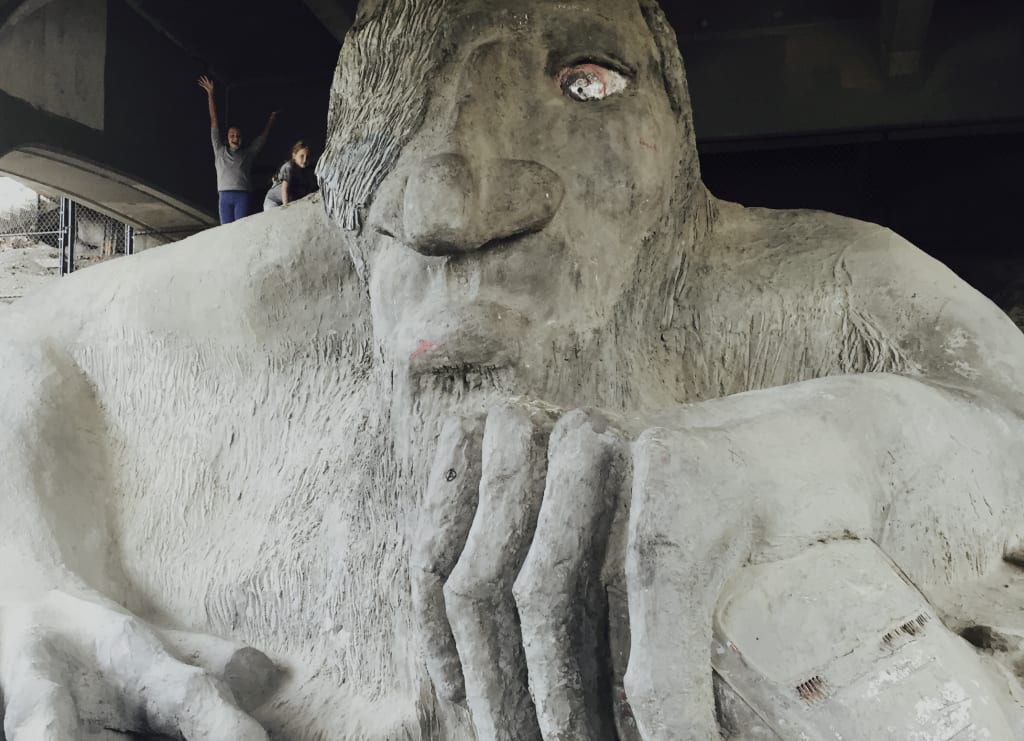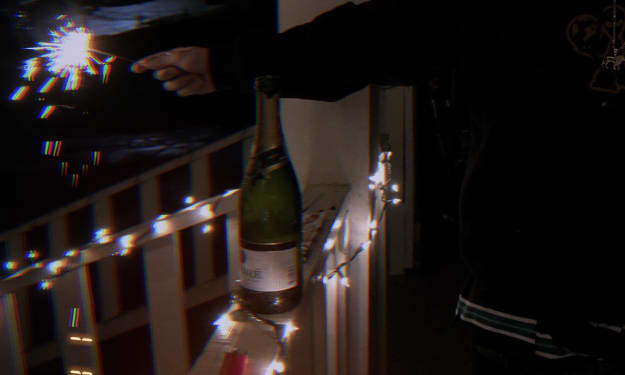
I wasn’t like the other girls. I never edited my photos. I knew my friends and all their friends would spend hours before posting—filling out their top lips, blurring pimples, and photoshopping out the cigarettes they were holding—but not me. And not because I was confident, but because I was so painfully insecure that I did not want to even make an attempt to alter pictures in any way in fear of someone noticing…because if someone notices…then not only do they know you’re insecure about posting, but also terrible at doing so. This was not a risk worth taking for me. Photography was improving at a pace I couldn’t keep up with, and it was my freshman year of college, so my high school siblings were already at risk of being cooler than me. I was still primarily using Facebook, and my sister had given up trying to get me to understand Instagram. She once told me that I’m embarrassing myself by getting under thirty likes and that I should probably delete anything that doesn’t hit the mark. I rarely hit thirty, and when I did, it was usually thanks to my little sister telling all her friends that I had posted and they should go like it. Usually, any given post would have a like or two from people my age, and the comments would be flooded with heart eye emojis from thirteen year olds.
Before, I had never really held on to the idea of “likes” or valued them as any affirmation of what I shared. I used social media as a way to connect and communicate, but mostly to engage in drama or be nosy. I would indulge and spend hours getting to know people: their families, friends, lives, posts, photos, and thoughts. Of course, as a teenager, I was certainly conscious of the amount of friends I’d have on a social media account as well as the likes I’d get. I would find myself shocked and naturally jealous when a friend of mine would get several hundred Facebook friends congratulating them on an accomplishment, but I did not actively value likes, so it was, admittedly, tough for me when my sister introduced the concept of likes as the new form of social status.
When I was becoming a teenager, social media was everyone’s favorite weapon. It held all the evils of insecure adolescents like a middle school bathroom stall, except we found that typing our feelings was much easier than physically writing them down or saying them out loud. People my age invented and mastered cyberbullying within a few years; I remember nothing about trigonometry but I remember every word Samantha W. sent me in 2008…partly because it was painful to hear, but mostly because it was something I could screenshot and revisit and share with others and obsess over for years and years. I was no angel, either. I know I made people’s lives difficult: I have plenty of chats still on file of me rudely turning boys in my class down so I could screenshot and humiliate them, I remember creating new group chats specifically to exclude someone, and my signature malicious move would be to strategically post pictures of my friends and I together knowing another person had asked to spend time with me that day. Nobody was exempt from bullying and being bullied. Being an adolescent in the 2010s could be brutal, and your humiliation was on display for the world to see.
My dad often talks about the old-school bullying…where you’d get pushed or smacked or embarrassed in person. The humiliation was limited, because without cameras or virtual space, only the “audience” could witness the attack. After that, everything was just word of mouth. Personally, I would much prefer to read a mean email than eat in a bathroom stall out of terror. However, parents were also learning to appreciate the benefits of social media. They wanted to connect with their kids: brag about them, post pictures of them, and just keep an eye on them in this new virual space. I had a good relationship with my mom, so it felt like I had an ally. Until, of course, her being on my side meant her witnessing her daughter get torn to shreds by anonymous accounts. In my world, this was just a regular day. I knew it was probably my friends just mad about me missing a sleepover, but once a parent sees something like this, it is quite difficult to come back from. Of course, her friends are now involved, and we have sixth graders fighting thirty-five year olds. The internet was madness, but I always enjoyed the chaos.
I know cyberbullying is an ever-changing art form that will always be quite present in the lives of kids and teens (and adults). I still don’t wear my hair in a ponytail because of something someone said to me fourteen years ago. I lie awake at night hating myself for things I’ve told people and ways I had made people feel, all coming from my own insecurities. As I age, however, I find more and more peace with these moments of weakness. I tell myself that anyone who was unkind to me now probably respects me, as I find myself having love and respect for everyone who I was once unkind to. I even let myself laugh a little about how strange it feels to be a teenager and how important everything feels in the moment, because adulthood has erased most of those moments from my memory by now, and the few remaining memories feel silly and sweet. I look back at my younger self with love and admiration, I forgive her and everyone around her, and I know she would think the person I am today is amazing and absolutely worth every hard moment she survived.
That being said, I also think she was a total dumbass sometimes. I’d like to describe my favorite of my younger self’s bullying technique: the blur. This was somewhat of a nod to my younger sister, who when mad at someone, would draw a picture of whoever she was mad at, cross them out, and hand-deliver it to them… This started at a pretty young age and we all found it pretty terrrifying and painful; it hurt to have a four-year-old do this with such passion. Nobody wanted to be the recipient of a family picture with your face with a giant red X over it. She would also really take time on the pictures. They were stunning. She would put all that effort in, and without even a slight hesitation to admire her art, the red crayon comes smashing down on my face. That’s why it hurt. She dedicated hours of her time being angry at me, and her creative outlet seemed to only fuel the flames. She truly terrified me, and for that, I looked up to her. I cannot compete, but I can try.
When I was in my late teens, dangerously close to being an adult, I visited the west coast on a solo trip to visit some family-that-aren’t-my-family. We did tourist things and went to the Fremont troll: a giant statue under a bridge in Seattle. It was great. I wanted a picture. (Now—back to social media…suddenly I am a bit older, more competitive, and hungry for attention. I wanted my likes. And I knew that my followers liked the pictures of just me. And I knew that they did not like the pictures of me with kid family members. An unfortunate pattern. I forgive myself.)
My cousin, Jillian, would not move. She had no interest of being in the picture but instead, a deeply annoying interest in the sculpture. Time was wasting. I left my phone on video and had placed it on a bench so I could use a still from the video to post a picture of my cool, underground west coast find. I asked my cousin to move so I could get this picture. She did not. I am starting to panic watching my phone sit there alone. Cars are passing on the road in front of us. Bikers whirr by on the dirt path. I see a mom stop suddenly as she realizes her daughter is no longer walking with her, but rather about ten yards behind, silently vomiting on the sidewalk. I shutter and run down the troll and retrieve my phone. My cousin follows. I warn her to hop over the vomit as she storms down with a trail of dust behind her. We cross the street and rejoin the rest of our family. At lunch, I eye my cousin periodically as I find the best shots from the troll, download my first editing app, and blur her out.
After forty minutes of blurring to my satisfaction, I post. A few minutes later, my phone rings.
It’s my sister. I inhale and announce to the table that it’s her.
“That picture you posted is weird. What is that next to you?”
I shrink into the phone. “What? Nothing. I don’t know. It’s just bad quality”
“Liar. That’s Jillian. Why did you blur her out?”
“I didn’t.”
“Tell me why. This is so stupid.”
“I just wanted a picture by myself. She’s in plenty from the trip.” The other line went silent. I waited. “Elle?”
“You’re an idiot. Love you, bye. I’m telling her what you did.”
When the food arrives I hear my aunt-who-isn’t-my-aunt laughing. Her and Jillian are looking at me. I look up, flashed a guilty smile, and mouth “sorry!”. I knew nobody was upset; they all just found it funny. I did, too. Jillian and I told everyone about the troll and the girl puking and we all happily chatted through dinner. On our way out, I check my phone.
“5 new comments.”
Arrogantly, I check my post to see what my admirers have to say about my adventure of the day. I freeze as I realize the comments are indeed from my usual following (my little sister’s friends), but seemed to leave their usual showering of compliments at home. Instead, those little technology geniuses wanted to know what is behind the blur. Shaking, I delete the post. How on earth do they have pixel vision and notice these things? What if everyone now knows I retouched that picture and they think I retouch every picture? What if everyone thinks I am a fraud and a liar? I was humiliated and haunted for years. My sister even got a hold of the original. She doesn't let me forget what I did. She likes to post it for Jillian's birthday every few years, to remind me that I’m both insecure and terrible at editing photos. And now my worst fear had come true: everyone else knew it, too.
However, ten and something years later, my younger cousins and siblings and all their friends are all infinitely cooler and nicer than me and we all know it. I have retired from editing pictures. These days, I send them to my siblings to photoshop for me. I admit: I still care about likes, and most of my likes are still from them. I respect them for their internet wisdom and subtle but effective bullying. And I forgive my younger self for everything.

Except I just might never forgive myself for this.
About the Creator
king virginia
Clearly I romanticize the hell out of my fever dreams.
Enjoyed the story? Support the Creator.
Subscribe for free to receive all their stories in your feed. You could also pledge your support or give them a one-off tip, letting them know you appreciate their work.






Comments
There are no comments for this story
Be the first to respond and start the conversation.